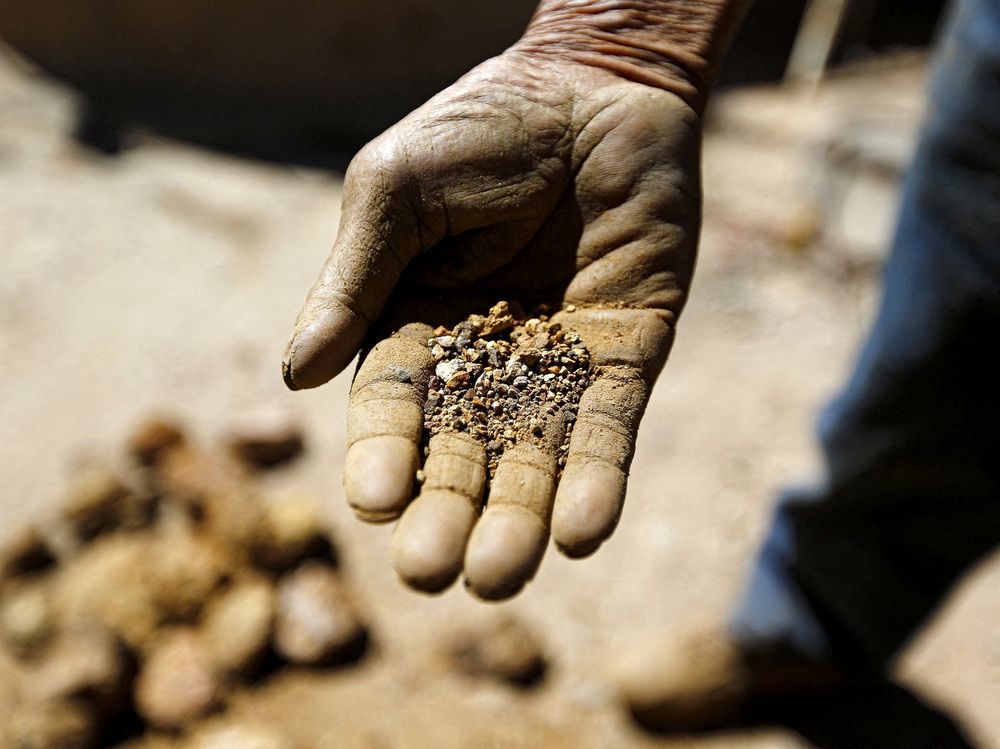President Gabriel Boric’s new constitution prioritizes human rights and the environment over business interests
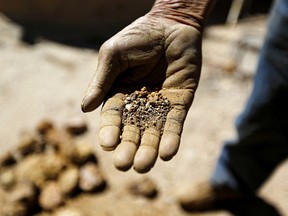
Article content
Latin America is an important North American trading partner, with growing importance on the world stage thanks to a wealth of minerals key to the green energy transition. Today, in the first of a series of stories on Latin America, Marisa Coulton takes a look at how changes to Chile’s constitution could raise risks for Canadian miners doing business in the country.
Advertisement 2
Article content
Canadian miners have had a good run in Chile since Canada signed a free-trade agreement with South America’s third biggest economy 25 years ago.
Article content
Some 55 Canadian mining companies are present in Chile, and the country is home to around 11 per cent of Canada’s international mining assets, according to the federal Department of Natural Resources, making Chile Canada’s second-most important mining market after the United States.
But things could get a little more difficult. Earlier this year, the Chilean Supreme Court ratified the closure of Toronto-based Barrick Gold Corp.’s Pascua Lama gold and copper mining project, because it reduced the availability of water in the area, impacted local glaciers and tainted a local river.
Advertisement 3
Article content
Gabriel Boric, the country’s new leftist president, was unapologetic when he visited Canada in June. He told Prime Minister Justin Trudeau that “convincing and forcing the private sector to work better” is essential to Chile’s development.
It’s been a while since a Chilean leader displayed an interventionist attitude so openly. When the Canada-Chile trade agreement came into force in 1997, the relationship between Santiago and its allies in North America and Europe looked quite different.
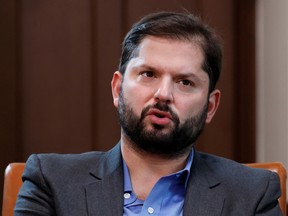
Back then, Chile’s approach to economics was still influenced by the free-market ideology of Augusto Pinochet, the military dictator who seized power in a coup in 1973, ruled until 1990, and spent the final years of his life fighting the Spanish government’s attempts to try him for genocide. Canada’s deal with Chile was its first with a South American country, giving Canadian industry a toehold in a region known more for its revolutionary politics and socialist tilt.
Advertisement 4
Article content
By all accounts, Chile and Canada should still be good partners today; the agreement stands, and the countries are aligned politically and culturally. But the two countries haven’t always seen eye to eye. Canada was silent when protests broke out in Chile in 2019 in response to the hike of the cost of a metro ticket. The 36-year-old former environmental activist is pushing his country to rethink its economy and relationships with key trading partners.

Mining companies, Boric said to Trudeau, “were used to destroying our territory and were used to (getting) a lot of revenues, and they didn’t (give) enough to the countries where they worked. And some of those companies were Canadian.”
Trudeau was defensive. “The vast majority of Canadian mining companies are responsible,” he said. “There are some that are not, and we have to be tougher against them.” But it’s not as easy as putting new regulations in place. The issue goes much deeper than that. Chile’s free-market constitution opened up the country to exploitation by foreign powers and prioritized commerce over all else, including the well-being of Chileans.
Advertisement 5
Article content
‘Grappling with the past’
Boric appeared uninterested in Trudeau’s nuanced take on the legacy of Canadian miners in Chile. “I told Mr. Trudeau that we want to demand Canadian companies to behave in Chile as if they were in Canada,” he said. “There is no reason that can justify that in some countries, you behave in some ways you wouldn’t do in your own country.”
Chile’s new president plans to put a stop to the environmental abuse by throwing out the market-focused constitution written during Pinochet’s brutal reign, and replace it with one that prioritizes human rights and the environment over business interests. The country is scheduled to vote on the new constitution in a referendum on Sept. 4. The constitution will pass if it gets 57 per cent support from Congress. (The benchmark is even higher for the major reforms, at around 67 per cent.)
Advertisement 6
Article content
In his presidential acceptance speech, Boric said, “…climate change, dear compatriots, is not an invention. It is here, and it has direct effects on our lives and those of future generations. We cannot look the other way when our farmers and peasants, when entire localities are deprived of water or when unique ecosystems are destroyed when we can avoid it.”
Stifling mining could have the opposite effect than intended, however.
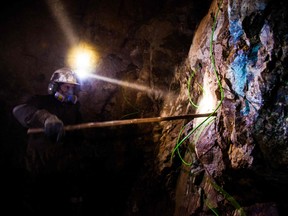
Paradoxically, Chile’s mining industry both hurts and helps the environment: while it poses a risk to local glaciers, flora and fauna, it could also position the country as a key actor in the global energy transition to an economy based on renewable energy. Chile is rich in the minerals essential for electric vehicles and electric vehicle batteries. It is currently the world’s top copper producer and second-largest lithium producer, with over 50 per cent of the world’s lithium reserves held in Chile alone.
Advertisement 7
Article content
Roughly 28 per cent of Chilean mines are state-owned, operated by Santiago-based Codelco, while the other 72 per cent are owned by private mining companies, including many from Canada. These include Teck Resources Ltd. and Los Andes Copper Ltd., both based in Vancouver, as well as Barrick and Yamana Gold Inc., both based in Toronto. The value of Canadian mining assets in Chile is roughly $21.3 billion, according to the Natural Resources Department.
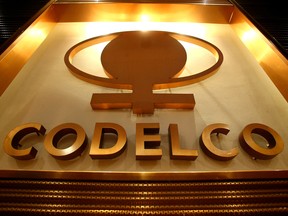
Investors once considered Chile a “poster child” for trade in Latin America, said Irene Mia, conflict and security researcher at the International Institute for Strategic Studies (IISS), a London-based think-tank. But things have changed, at least in the eyes of political risk analysts.
Advertisement 8
Article content
“Companies are becoming more aware of the geopolitical aspects to their business,” said Michael Susong, senior vice-president of global intelligence at the Montreal-Based GardaWorld Corporation, a private security firm. “In the past, you could just push your way into the world and the market, and geopolitical capital was less of a factor,” he said, adding that today, companies need to be more tactful in how they choose to enter a new market, tracking changes in government and policy shifts closely.
“Historically, Latin America has already been a good North American trading partner,” Susong said. “I wouldn’t give up. I just think countries and companies need to be aware of what those risks may be.”
Chile’s Boric is not an outlier, but rather a product of years of political dissatisfaction in the country. The current constitution severely restricts civil liberties, and is a relic of a dark history Chileans would like to leave behind. During his reign, Pinochet executed, interned and tortured thousands of leftists, socialists and political critics. “Sometimes democracy must be bathed in blood,” Pinochet said by way of explanation.
Advertisement 9
Article content
Businesses should focus “less on the president and more on what the president symbolizes,” said Carlo Dade, who studies trade policy at the Canada West Foundation, a think-tank in Calgary.

“There’s been a major social movement and social shift in Chile,” Dade added. “The rewriting of the constitution is emblematic of this,” Dade said. “The country’s at a point where they’re grappling with the past and trying to change. That is the issue. The president is just the tip of the iceberg.”
A ‘laboratory for neoliberalism’
Though flawed, the previous constitution can be credited with instilling free-market discipline that helped Chile become one of the stronger economies in the region. The legacy of the reforms is complicated. On one hand, Chile’s gross domestic jumped from US$17 billion USD in 1973, when Pinochet overthrew the government, to US$317 billion in 2021, according to World Bank data.
Advertisement 10
Article content
However, in 2020, the richest 10 per cent of the population owned more than half of the country’s wealth. The gap is narrowing, but Chile remains a highly unequal nation.
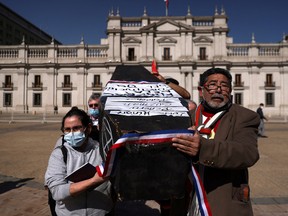
In the 1970s, Pinochet brought in several economists who had trained under Nobel laureate Milton Friedman and Arnold Harberger at the University of Chicago. The economists, who came to be known as the “Chicago Boys,” conducted the most dramatic, far-reaching reforms in Chile’s history. “Chile was a laboratory for neoliberalism in its most pure (or extreme) version,” wrote Promarket, a publication by the University of Chicago.
The Chicago Boys cut public spending, quashed labour unions and rapidly opened the economy to trade and investment. Some 95 per cent of public companies were privatized.
Advertisement 11
Article content
“You still have strong institutions,” Dade said. “The legacy of the Chicago Boys, Milton Friedman’s disciples, has led to strong institutions in the country. Stronger than, I would argue, anyplace else in Latin America. In some cases, strongest in the hemisphere.”
The 2022 Latin America Mining Risk Index by Americas Market Intelligence (AMI) said that the risk associated with mining in Chile could change if Boric’s constitution is approved.
The legacy of the Chicago Boys, Milton Friedman’s disciples, has led to strong institutions in the country
Carlo Dade
Article 145 of the proposed constitution, for example, would establish the state’s absolute domain over “all mines and mineral substances, metallic, non-metallic and deposits of fossil substances and existing hydrocarbons in the national territory.” It adds that “the exploration, exploitation and use of these substances will be subject to a regulation that considers their finite, non-renewable nature, intergenerational public interest and environmental protection.” Mining companies could also be required to allocate resources to mitigate and repair environmental damage they cause.
Advertisement 12
Article content
The new constitution notwithstanding, Chile ranks well when it comes to mining risk. According to the Mining Risk Index, Chile is the most “welcoming” jurisdiction for miners in Latin America. Based on seven risk categories, including political interference, economic pressure, and reputational risk, Chile topped out as the least risky jurisdiction in Latin America for mining. This reality still holds true for most Canadian mining companies in the region.
Steve Cochrane, chief executive of Calgary-based Lithium Chile Corp., said it’s a game of wait and see. “As far as the new constitution is concerned there’s no point in worrying about something until the actual vote takes place,” he said in an email. “Then, depending on the outcome, we will respond accordingly.”
Advertisement 13
Article content
Cochrane added he hasn’t noticed a slowdown in inquiries from large global mining companies about their operations in Chile, which, to him, is an indication that “companies still see a lot of opportunities in Chile in spite of all the rhetoric.”

A spokesperson for Vancouver-based Teck Resources said in an email: “We continue to monitor the constitution rewrite process. There are several drafting and approval phases yet to go. The final proposal will ultimately be decided by popular vote.”
Los Andes Copper said: “Chile is a democratic country, and has sovereignly decided to enter into a process to replace its constitution. Los Andes Copper, as a foreign investor in Chile, deeply respects this process.” The spokesperson added, “We are not considering any changes or adjustments to our exploration program and prefeasibility studies in view of constitutional changes in Chile.”
Advertisement 14
Article content
Neoliberalism’s ‘grave’
So, Canada-Chile trade relations are stable for now. During Boric’s recent visit, Trudeau said the two nations were “tremendously aligned.” But this hasn’t always been the case.
When the hike of the cost of a metro ticket set off the largest protests in Chile’s history three years ago, resulting in five dead and thousands injured, Canada was noticeably silent. Non-profit MiningWatch Canada speculated that this had to do with Canada’s mining interests in the region. Calls for a new constitution were a recurring theme throughout the protests, the slogan being, “If Chile was neoliberalism’s cradle, it will also be its grave.”

Trudeau did not directly endorse the new constitution, but acknowledged that “you cannot grow a strong, resilient economy in the 21st century unless you are also protecting the environment, unless everyone has a chance to participate, unless you are including people who have been excluded.”
Advertisement 15
Article content
Even if the constitution is passed, Mia, the Latin American security expert, said she doubts it will have as dramatic an impact as Boric appears to want. “I think it was good to channel this violent unrest into a constitutional process, but it is true that it carries a risk,” she said. “It’s really hard to change a socioeconomic model with a constitution. It’s not that easy. You can’t just say that with this constitution, we’re going to eliminate inequalities. Even if the constitution is approved, I’m not sure it will solve the problem for which it has been convened, in a way.”
Mia is also skeptical that Latin America has changed as much as the elections of leftist leaders in Mexico, Chile and Colombia suggest. “I am kind of reticent to call it a pink tide,” she said. It appears to be a lean to the left, she said, because Latin Americans are upset at the economic fallout from haphazard pandemic lockdowns and are pushing out the incumbents, most of whom happened to be right-leaning.
Advertisement 16
Article content
Lockdowns were especially hard on Latin Americans, 60 per cent of whom work informally. This general dissatisfaction with how the economy was being managed “translated politically into what we see across the region: the rise of populism,” Mia said.
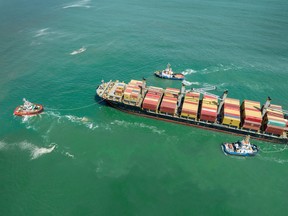
John Price, managing director of Americas Market Intelligence (AMI), agreed. In Latin America today, “it’s a throw the bums out mentality,” he said. The population blamed the government for mishandling the pandemic and the resulting economic downturn. “It’s disruptive because the people who are coming to power… have never governed before,” he said. “So it’s not about left and right, it’s about a whole new roster of leaders… they’re inexperienced, and this is what frightens business. Business likes predictability.”
Advertisement 17
Article content
There will be challenges ahead. The International Monetary Fund reported recently that Latin America’s COVID recovery was slowing, and that the war in Ukraine had only exacerbated existing issues. The war is “raising uncertainty about the outlook for Latin America and the Caribbean,” wrote the researchers.
S&P Global Inc., the research and data firm, said earlier this year that Latin American traders were struggling with increased shipping costs and delays. Items that once took weeks to arrive are taking several months.
“The political infrastructure, the government, can’t really get its feet up under it to be a good partner to its population and to be a clear partner to business. It will be a struggle,” Susong said.
Advertisement 18
Article content
As Canadian businesses reassess their Latin America portfolio, the risk calculus will differ somewhat. Investors, most notably Canadian pension funds, will be most interested in long-term political and economic stability, said Price. Investors may want to watch the labour market stability, he added. (Labour market growth slowed this quarter, according to Scotiabank.)
Canadian B2B exporters, on the other hand, will take their cue from the multinationals with whom they do business, following them wherever they go. Price said that businesses seeking to operate in Latin America can prepare themselves by acquiring a local partner, or by ensuring there is adequate expertise on their team.
-

‘Overexploitation’ by Canada’s Lundin caused massive sinkhole near mine: Chile
-

The new oil? How demand for copper could reshape the world
-

Why Brian Porter is doubling down on Scotiabank’s Latin American expansion
-

‘The basic metal of electrification’: Why famed energy analyst Daniel Yergin sees a copper crunch looming
Advertisement 19
Article content
Latin America still remains one of the better regions in which to invest in, despite the instability, Dade said. “There probably has been an increase in risk but there’s probably been an increase in risk globally.”
Mia echoed this, saying she hadn’t seen anything alarming enough for her to counsel businesses to leave the region immediately. Investors should take into account the “political dysfunction” in the region but be aware that the bold ideas proposed by leaders such as Boric are likely too ambitious to be adopted. “I don’t think there is much to worry (about),” she said.
• Email: mcoulton@postmedia.com | Twitter: marisacoulton

